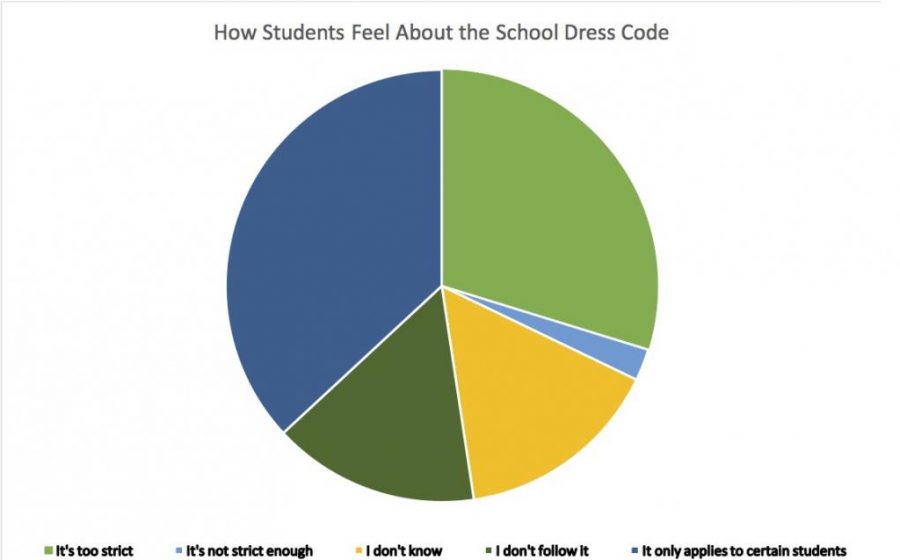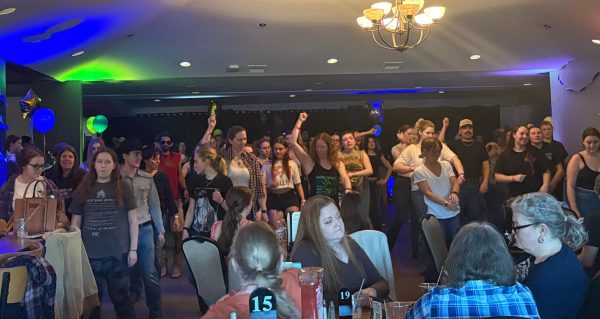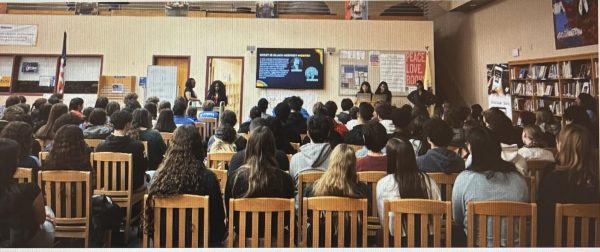Students Speak Up About Dress Codes
With the summer months quickly approaching, students all around are ready to break out the shorts and t-shirts, but will their fashion choices pass the dress code?
Dress codes were first introduced in the classroom setting in 1969 when the Supreme Court had enacted it due to a case regarding students wearing black armbands to protest the Vietnam War.
The final resolution had sided with the fact that students should and would not “shed their constitutional rights to freedom of speech or expression at the schoolhouse gate.”
However, The Supreme Court did create a law that gave schools the power to regulate what their students wore in relation to what they deemed appropriate. Here, at Warren Hills, we experience the effects of that law in our day to day lives, as spelled out in the Student Handbook on pages 14 and 15.
In early March, Sociology students were given a questionnaire generated by The Streak staff about their experiences with the dress code at Warren Hills.
Not every student answered every question, but out of the 82 who answered the prompt: “How do you feel about the school dress code?,” 31 indicated that it “seemed to only apply to certain students” and 25 circled that “it was too strict,” while 13 marked “I don’t know.” And another 13 indicated “I don’t follow it.”
As for “why students think dress codes are enforced,” out of 78 student responses, 32 circled the option dress codes were enforced in schools “To keep it professional.” 22 had attributed it to “Sexism,” 18 collectively had agreed it was so nobody was “distracted” or “offended.” The last six opted out with selecting, “I don’t know.”
By far the most provocative question that drew a nearly unanimous response was: “Who do you think is most affected by the dress codes in public schools?”
Out of 82 students, 72 specified the answer was “female students.” eight students circled “All students,” were affected by the dress code and one person chose, “I don’t know” while another selected, “teachers.”
No students had identified with saying that “male students,” alone, were impacted by it.
Sociology students were next asked several open-ended questions to which they could respond, including a recount of any personal experiences with dress code infractions. Here, too, the respondents were overwhelmingly female.
“I once wore a thick strapped tank top, that revealed no cleavage or midriff, and my bra strap was peeking out accidently,” said junior Molly Guillemin. ”I was asked to change.”
Senior Emily Dunlap had a similar experience.
“In freshman year , I would wear spandex under my shorts so I wouldn’t be dress coded and a teacher said my spandex were too short, so I had to change,” she said.
As with Guillemin and Dunlap, most respondents with dress code violations recounted having to change clothing due to their length.
On page 15 in The Student Handbook, it states, “Skirts, shorts, and dresses must be an acceptable length not exposing undergarments or anatomy. Administration will determine this by assessing exposure due to routine physical tasks, such as sitting, raising hands… etc.”
But what does that mean to students?
“[I] was told to change because of my pants,” said senior Cassie Guth. “They were too short.”
Senior Alexis Haroun added to that thought with an infraction of her own.
“My freshman year a teach actually took out a ruler and measured my skirt,” Haroun retold.
Stories like these also reach girls that haven’t experienced them.
With so many responses being from girls’ experiences, how do boys feel about the topic?
“I have not [had any infractions], but my friend got dress coded for her shoulders being exposed, which is ridiculous because shoulders are not distractions at all,” said senior Jared Dolobach.
Additionally, senior Michael Arista expressed his opinion on the matter entirely.
“I think it’s unfair. I don’t think it is anybody’s intention to distract anyone,” said Arista. “If someone gets distracted that’s on them. Clothes are a way for someone to express themselves.”





